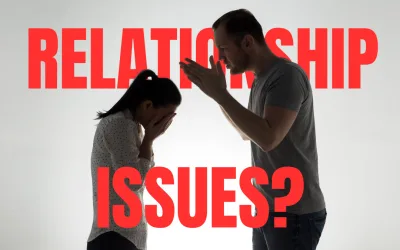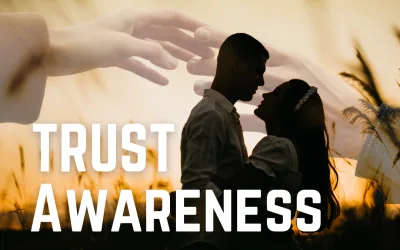A variety of emotions, such as sensations of isolation, grief, or feeling numb or disconnected, are all described by the adjective “emptiness.” When these emotions are a direct result of a loss, tragedy, or other traumatic life experience, they can be considered natural. An underlying mental health disorder is frequently to blame when these sentiments persist past the stressful conditions or when they become persistent and interfere with your capacity to perform.
What Leads to Empty Feelings?
Regular and pervasive feelings of emptiness frequently point to a more serious psychological problem.
Trauma
Empty feelings are frequently connected to a tragedy or loss, presumably one that occurred in the past. According to research, those who experienced abuse as children, particularly emotional abuse, are more likely to report ongoing feelings of emptiness. 4,7
Suffering a Loss
People who lose someone or something they love frequently describe feeling empty. 2 This could be a result of a loved one’s passing, a miscarriage, a breakup, or even the loss of a career. Grief is a normal reaction to loss and encompasses emptiness, although these emotions should ultimately start to fade.
Having a strange or missing feeling
Feelings of emptiness can occasionally be a sign that something is lacking or incorrect in a person’s life, such as continuing to work in a position, maintaining a connection with someone, or continuing to live somewhere.
Personality disorder or mood disorder
Sometimes the empty sensations are a symptom of a psychological problem from the inside, such as a mood or personality disorder. Given that the word “emptiness” is used to express a wide range of emotions and subjective sensations, there are numerous internal and external factors that could be to blame.
Having a strange or missing feeling
Feelings of emptiness can occasionally be a sign that something is lacking or incorrect in a person’s life, such as continuing to work in a position, maintaining a connection with someone, or continuing to live somewhere.
Personality disorder or mood disorder
Sometimes the empty sensations are a symptom of a psychological problem from the inside, such as a mood or personality disorder. Given that the word “emptiness” is used to express a wide range of emotions and subjective sensations, there are numerous internal and external factors that could be to blame.
Emptiness-related feelings
Since there is no universally accepted definition of emptiness, the term is occasionally used to describe a variety of different internal states.
Other emotions that could account for persistent empty feelings include 3, 5, and 6.
Anhedonia is the experience of losing interest in and pleasure from previously appreciated activities. Even though they may still engage in these activities, hedonists may find them boring or unsatisfying.
Loneliness: Loneliness refers to the emptiness and misery that result from being socially isolated. Even though a person is surrounded by others, they may still feel lonely if they believe that no one is paying attention to, understanding, or caring about them.
Hopelessness is a feeling of emptiness that many start to believe will never pass or disappear. When a person loses faith in the likelihood that things will improve in the future, they may feel hopeless and give up on life or think that it is meaningless.
Worthlessness: A sense of guilt or not being “enough” in one or more aspects is what it means to feel worthless. People who feel unworthy frequently speak of feeling small and unimportant, and the emptiness stems from the belief that they are fundamentally deficient in positive traits, abilities, or skills.
Despair is a severe sort of emotional agony that is overwhelming and sometimes even seems to have no end. When someone is depressed, they don’t feel emotionally numb; instead, they feel devoid of any joy or hope.
Disconnection: There are various meanings associated with feeling disconnected. While some people experience a physical or emotional separation from themselves, others experience a disconnection from others. Some people may experience a sense of detachment or disengagement from life as if they were merely going through the motions.
Numbness: Feeling numb or incapable of feeling anything at all is a common defence strategy people use to deal with emotional anguish. This may occur as a result of trauma, abuse, or loss, as well as from “checking out” with drugs or alcohol or simply by diverting attention from one’s feelings.
Longing: The feeling that something is missing from life is a common source of longing. There is a constant sense of being unhappy or unfulfilled and needing something but not knowing what, and sometimes people can identify what is lacking and other times it is not obvious to them.
10 ways to deal with the emptiness
You might be able to start addressing your feelings of emptiness on your own in addition to getting behaviours. Feeling better typically requires making some adjustments to how you react to and manage your emotions, as well as how you spend your time. 6
Here are 10 methods to begin overcoming emptiness:
- Establish a routine of mindfulness or meditation
Being more awake and conscious of your experiences in the present moment is what meditation and mindfulness refer to as a practice. This helps people feel more connected to themselves and their experiences. Being able to step back and gain space from challenging ideas, stories, and emotions that you may have been unintentionally numbing or avoiding is another aspect of mindfulness and meditation.
2. Invest more time in interpersonal interaction
Humans are social creatures who rely on relationships and interactions with other people. The importance of social connection to your physical and mental health might help you deal with empty sensations that result from feeling isolated, unconnected, or depressed.
3. Make the Most of Your Free Time
Make the most of your time off on the weekends rather than binge-watching TV. Plan exciting, engaging, and rewarding activities for the weekends and evenings, and push over any initial reluctance you may experience to participate because you “don’t feel like” it. You will frequently find that starting is the hardest part and that once you finish, you feel better about yourself and about using your time wisely.
4. Establish and pursue goals
Setting objectives can help you focus your efforts on making quantifiable improvements to your life and surroundings, which can help you fight the emptiness brought on by feelings of worthlessness, hopelessness, and desire. Setting goals also gives your daily life purpose and significance, which motivates you to maintain an optimistic outlook on the future.
5. Locate a Creative Space
Being creative benefits you in numerous ways, including forcing your mind to think in novel ways, offering a channel for your emotions, and giving you the satisfaction of seeing your ideas come to life. A lot of creative activities also fall under the category of “flow” activities, which are mentally stimulating, engaging, healthy for your psychological health, and give you a sense of calm confidence.
6. Express Your emotions
Emotions connect you to yourself, others, and your experiences, and they are a big part of what makes life full and meaningful. People who keep their emotions under control may feel empty. Discover how to be present with your emotions without getting swept up in them or the thoughts that trigger them.
7. Heal Past Injuries
People who experience emptiness due to past traumas or losses must put in the difficult work of reviewing and healing these old wounds. The best way to do this is in therapy with a qualified and experienced counsellor, but there are other options you can explore, such as reading self-help books, joining a support group, or working on increasing your level of self-compassion.
8. Develop your self-awareness
Several people who report feeling empty on the inside believe they are cut off from themselves and could benefit from some introspective work. To find out more about your personality and how it affects your thoughts, feelings, and behaviours, think about taking a personality test like the Myers-Briggs or Big Five. Working on defining your core values, which stand for the things in life that are most important to you and can provide you with direction, is another option.
9. Be More Active
All facets of your physical and mental health will benefit from exercise and physical activity. You may balance the brain chemicals that control your mood, relieve stress, and give you energy by becoming more active. Making time for exercise also helps you become more aware of your body, which is beneficial for anyone who feels empty inside and cut off from their physical self-counselling counselling.
10. Find a Way to Give Back or contribute
One of the most fulfilling and psychologically healthy ways to spend your time and energy is by helping others. Finding methods to give back also aids in overcoming empty feelings brought on by a lack of connection, purpose, or self-worth. Contributions can take many different forms, including time commitments, offers of assistance to friends or coworkers, charitable donations, and even modest acts of kindness.
Cessation
First-person narratives of emptiness indicate an integrated experience about the interplay of one’s relationships with oneself, others, and the larger world. Therefore, emptiness can be thought of as an existential emotion; it serves as a backdrop that structures how the self interacts with the personal and impersonal worlds.
“The sense of the wind rushing through when we awake on some days cannot be eliminated; therefore, we must accept it and move on, just as the boy did. There is a region beyond the edge of the world where nothingness and matter neatly overlap and where the past and future form an unending loop.”








0 Comments